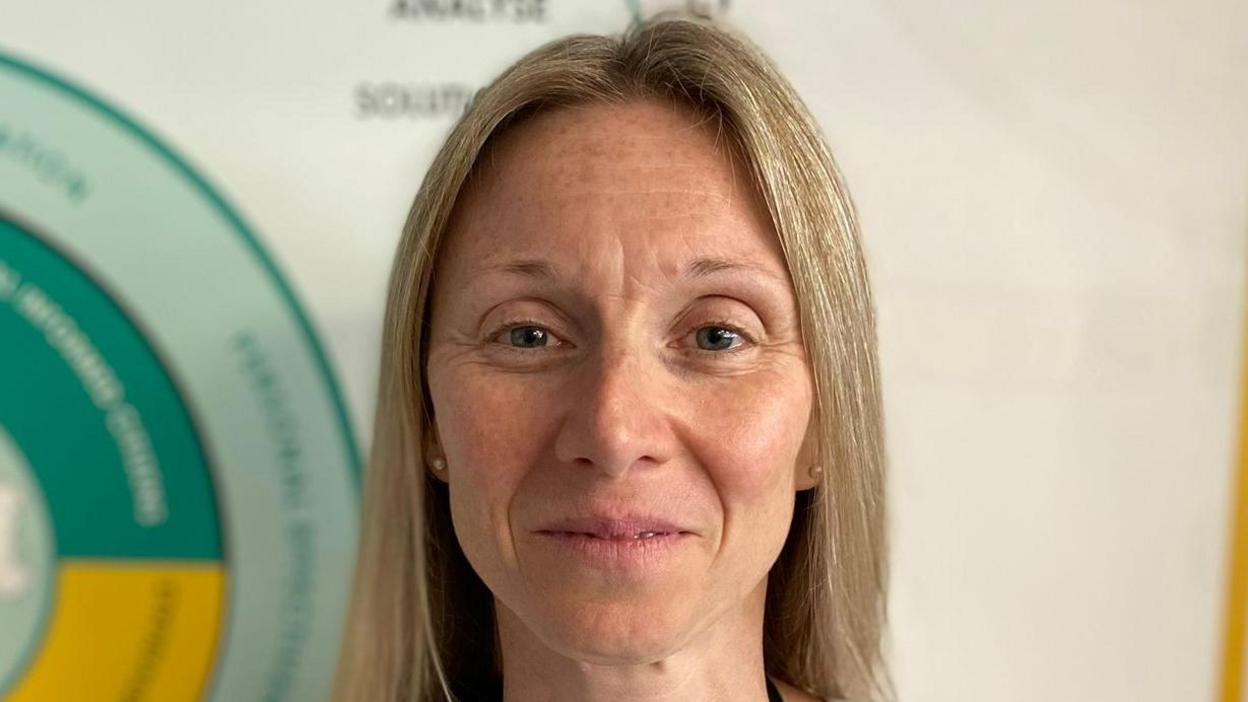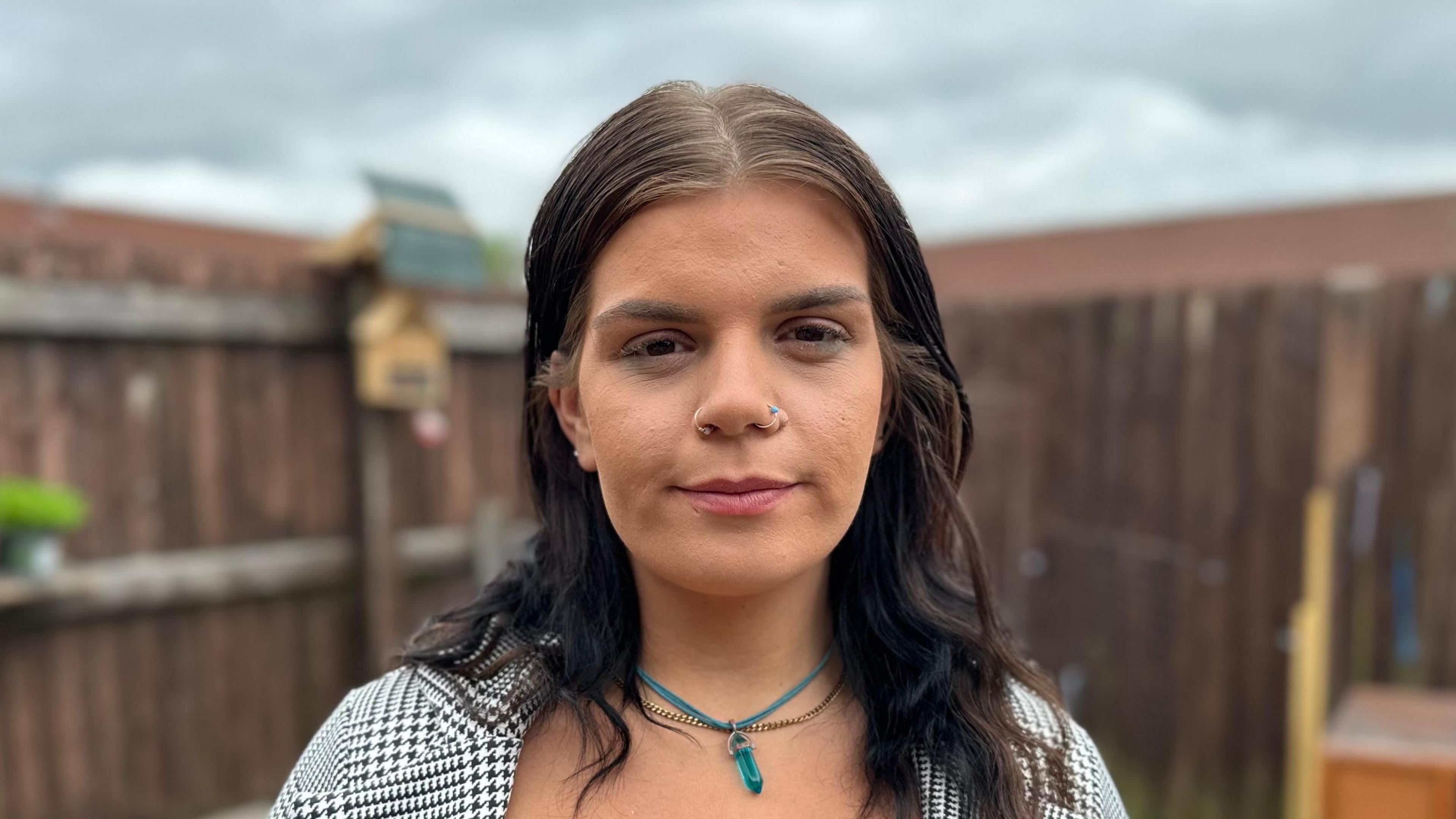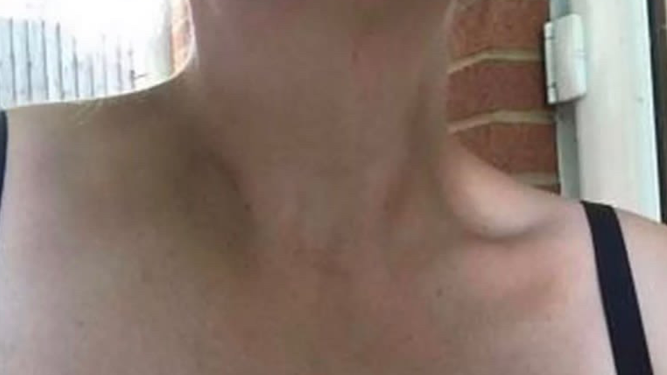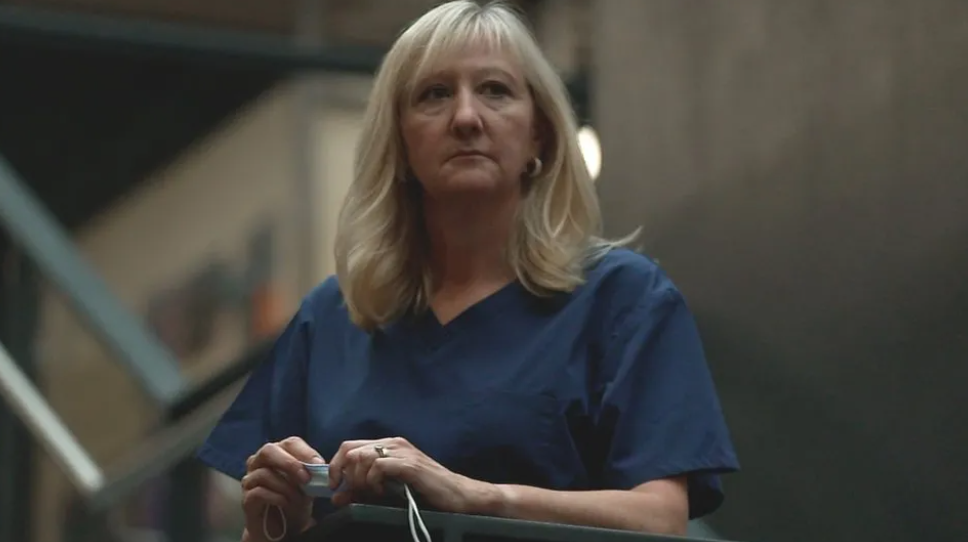Boys asking teachers how to choke girls during sex

Dr Tamasine Preece says parents and carers will be horrified by children's questions about strangling girls during sex
- Published
Boys as young as 14 have been asking their teachers how to choke girls during sex, a teacher has told the BBC.
Dr Tamasine Preece, who teaches at Bryntirion Comprehensive in Bridgend, said some children now felt it was a normal part of sex and asked if "a soft squeeze on the neck is OK".
Health experts said pornography was a key contributor and that there was no safe way to strangle someone.
One woman, Sophie Henson, who was strangled until she passed out, said choking should not be normalised as part of sex.
It comes after warnings following the death of 26-year-old dancer Georgia Brooke, who was choked to death during sex with her boyfriend.
Warning: Contains distressing content
Sophie Henson says choking during sex led to real violence
Billie Eilish says porn exposure caused nightmares
- Published14 December 2021
Andrew Tate 'choked me until I passed out'
- Published6 June 2023
Dr Preece, the school's curriculum lead for health and wellbeing, said there had been questions "creeping in, such as 'How can I choke someone safely?'".
She added: "I’ve certainly been told by some children that they think that girls really want to be choked - with one saying girls are mad for it."
Johanna Robinson, Wales’ national adviser on violence against women and girls, has heard similar examples.
"I’ve spoken to sexual health nurses who told me men in college were asking questions like 'How do I safely strangle my partner?' One young person was quoted to me asking 'What do I do if I need to resuscitate my partner?'.'"

Sophie Henson says she thought she would die from being strangled
Last year, Sophie Henson was strangled by her ex partner as part of an aggressive situation.
"He gripped me by the throat so tight, I thought I was going to die," said the 24-year-old from Bridgend.
"I felt like a dead fish, my mouth was open, my body was so limp."
Sophie said she felt carrying out the act previously in the bedroom had blurred the lines, making it more acceptable.
"He'd say, 'You liked it 10 minutes ago during sex, why don't you like it now?'"
She's now warning other women to seek out and assess the risks before consenting to it as part of sex.
She said stories of it being normalised among young people were "worrying".
"Everyone is entitled to their bedroom manners, but there's no way it is safe," she added.
"There is a risk factor and it shouldn't be experimented with lightly - do your research and ask questions."
Her ex-partner Zach Pennell was convicted of coercive control and intentional strangulation in January this year.

Sophie took a photo of bruises on her neck after being strangled in 2023
Dr Preece said conversations needed to include consent and how that must continue throughout sex.
She encourages conversation in her classroom, so teenagers understand consent is needed rather than "just blindly accepting it" and encourages children to talk to their parents as well.
She added: "Rather than just choking specifically we talk about the fact there should be no abuse of any kind in sexual relationships.
"We can shy away from these issues or we can be realistic that they’re happening and making sure that we’re the ones having conversations with our children rather than leaving it to tech companies."
Ms Robinson echoed this message, saying: "How much harm do we need to see happen before we’re brave enough to have these conversations?
"I don’t think young people realise the potential harm - it can take little pressure to cause damage or cause someone to be unconscious.
"Helping young people to understand that is a first step."

Dr Kate Howells says aggressive porn gives an unrealistic message to young people
Dr Kate Howells, an associate specialist in sexual health, believes more people think strangulation is expected, with "a lot" of young women telling her it had happened to them.
She believes instant access to porn for anyone with a phone is a key factor for it.
"People are watching it from a very young age and, for a lot of young people, it is their first sexual experience and therefore they’re almost looking to porn to learn about sex and what to do to be good at sex.
"If young people are seeing that kind of messaging from pornography rather than loving or caring, respectful messages then they'll think that's what they need to do - whether they feel comfortable with it or not."
You can catch up with Wales Live on BBC iPlayer.
If you’ve been a victim of crime, details of organisations offering information and support are available at bbc.co.uk/actionline.